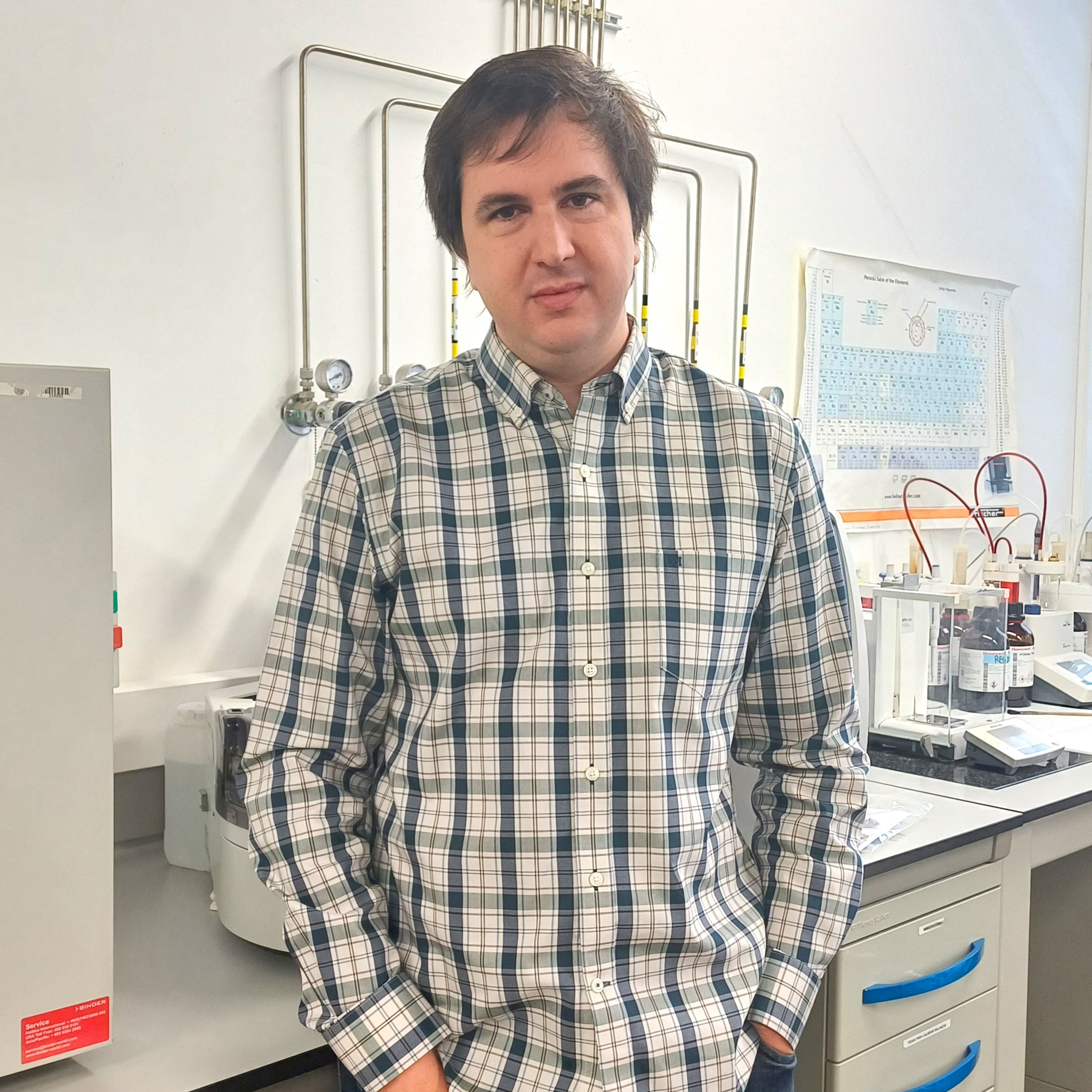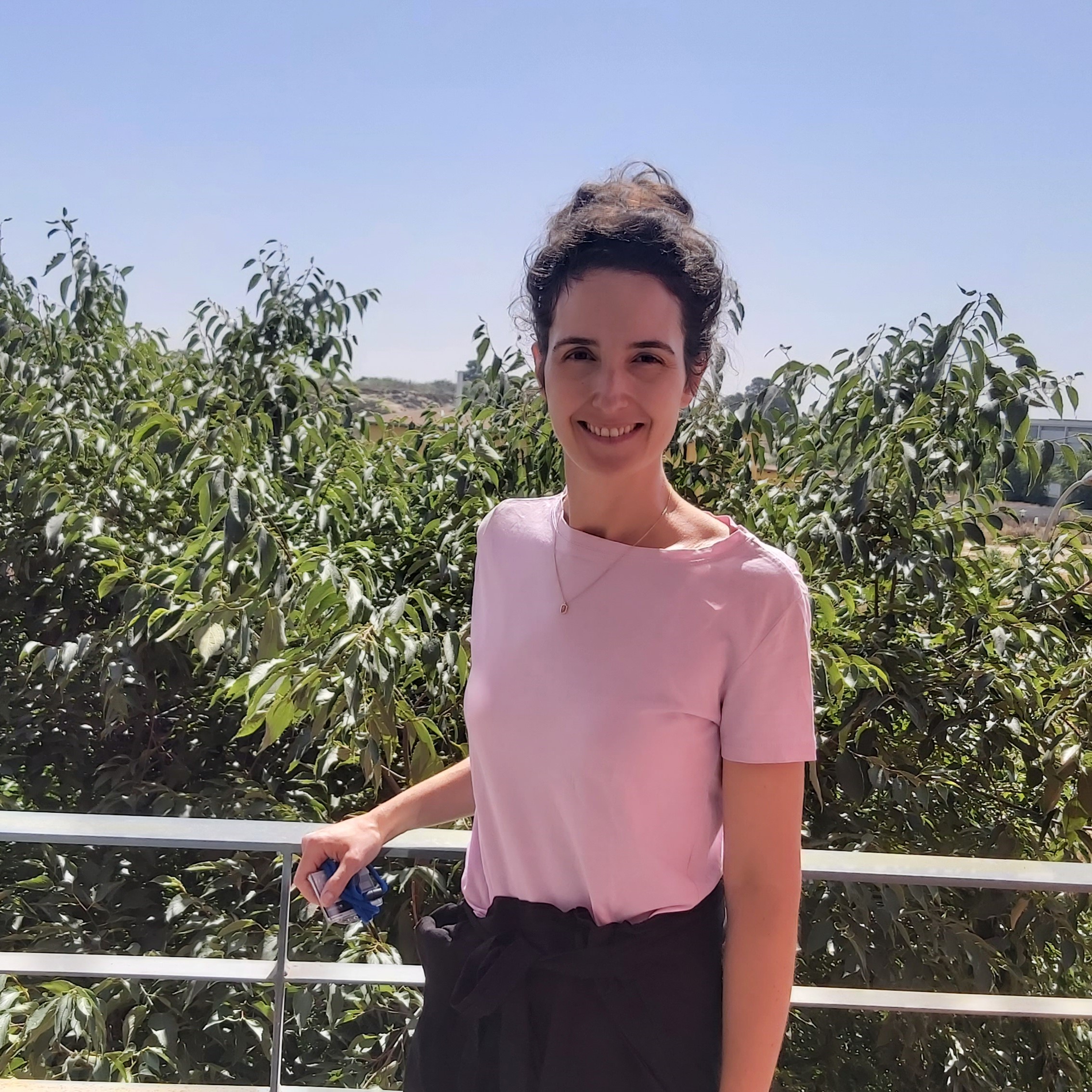
Why did you decide to go into research ?
I did my Final Degree Project in Finland and my supervisor in Spain was Professor Rafael Bilbao, who was the director of the Thermochemical Processes Group. When I finished my TDP with him, he asked me if I had thought about what I wanted to be when I grew up. I wasn't very sure, but I had always liked teaching and I was gradually getting to know research. And it was he who gave me the opportunity to participate in a research project with a company and other members of his group. I worked for almost two years in an Aragonese company related to chemical engineering and the environment. During that experience, I realised that I liked much more how research is done at the University. I did a master's degree in Chemical Engineering, and then a PhD. I discovered more about research, which fascinates me, and that was the beginning.
Why did you choose the Processes and Recycling research line?
Because they are sustainable lines and can help the environment. We have several challenges to try to make the world a better place, for example, to become less dependent on fossil fuels or to look for new processes to produce energy, materials and chemicals in a more sustainable way.
How long have you been associated with the I3A and what would you highlight about the Institute?
I have been linked to the I3A twice. The first time as a pre-doctoral researcher, from 2011 to 2016, when I was doing my thesis, and then when I returned to the University as a Ramón y Cajal researcher, specifically to the I3A, in January 2023. What I would highlight is his great willingness to help and solve all the problems, his diligence and the closeness he has with us.
In your research group, what are your main lines or areas of work?
What we do in the Thermochemical Processes Group is to recover waste of different kinds and minimise pollutant emissions in combustion processes. These are the two main lines. I am more related to the first one, which is the valorisation of waste to produce biofuels and value-added products using thermochemical processes.
Is there a project that you are particularly proud of for its impact on society or academia?
I spent several years abroad and with other postdoctoral contracts, two of them at the Institute of Carbochemistry, which is a CSIC centre. There I started a line of research on the production of biofuels through hydrothermal treatment, i.e. with water as a reaction medium. I worked with agri-food waste and, specifically, with almond pericarp, which is a waste product that has no great use or value. So, it was an avenue to explore.
In addition, the covid-19 pandemic coincided with a large use of face masks, which are mainly plastic, and became a new waste worldwide. We saw that we could bring the two together and seek their simultaneous valorisation. To make the process more sustainable, and especially because of the presence of microplastics in the seas and oceans, we came up with the idea of replacing fresh water with sea water. It was something new and we had very good results. We found relationships between the two wastes and seawater turned out to be not only a sustainable reaction medium, but also self-catalytic due to the presence of dissolved salts.
Any ongoing projects you would like to highlight
I am exploring new strategies based on hydrothermal treatment to try to valorise different terrestrial, marine and also plastic wastes. I try to look for combinations of wastes to create processes that are less dependent on the raw material, more flexible and based on synergistic effects so that their joint valorisation is better than their individual valorisation.
Also, I work with marine debris such as harmful algal blooms, which are uncontrolled algal growths that affect the biodiversity of the sea and can kill some species. And we are exploring the production of high-purity hydrogen from waste streams with CO2 capture using residual adsorbents.
How do you envisage the future of your research area, and are there any challenges that seem particularly important to you?
The future I think is to try to develop processes that are less dependent on raw materials, more competitive and to try to have a holistic vision of the process. A vision in which we do not just focus on one unit of operation, but try to go much further, with a broad vision in order to be prepared for possible changes in the market or in the waste itself.
What do you enjoy most about your profession and what do you enjoy least?
What I like most about my profession is thinking of new ideas and having a lot of freedom to carry them out, even if they might be crazy ideas that at first sight don't seem to work. I also really enjoy teaching, passing on knowledge, teaching and learning from future generations. At the moment, there is not really anything I don't like. There are, obviously, periods in which work accumulates and, many times, the rush to meet objectives doesn't let you enjoy what you do so much, but nothing that I dislike.
What would you say to anyone thinking of going into research?
First and foremost, I am talking to someone who is thinking about what to do in their future, who is fighting for what they would like to do, who is not influenced by the opinions of others and who is trying. Work is a big part of our life, you have to try to work in something that you like and that makes you happy. And then, if someone believes that research can make them happy, let them struggle, it is not easy and there are long periods of uncertainty. But if it is what they really want and they are willing to accept the uncertainty of research and the complicated moments, let them try it.
CLOSE UP…
What did you study: Chemical Engineering
A dream to fulfil: To have a permanent position and for all this research to have an impact on society and to continue to enjoy my family and friends.
What do you do in your free time: I love listening to the radio, watching television, going to the cinema, being with my family and friends and football. I enjoy and suffer cheering on Real Zaragoza.
A book: From what I have read recently, I really liked the biography of Steve Jobs.
A film: El penalti más largo del mundo, Ocho apellidos vascos or Días de fútbol. I love to switch off and laugh at the cinema.
A series: Spanish comedy series, Aquí no hay quien viva or La que se avecina, and international series, Breaking Bad or The Big Bang Theory.
Favourite band or singer: I don't have one, I like different styles, especially Spanish Pop Rock.
A trip: Japan, United States or England
A drink: Coffee and tonic
How would you define yourself: as a person who takes things with humour and likes to see the good side of things, hard-working, tenacious and constant.
